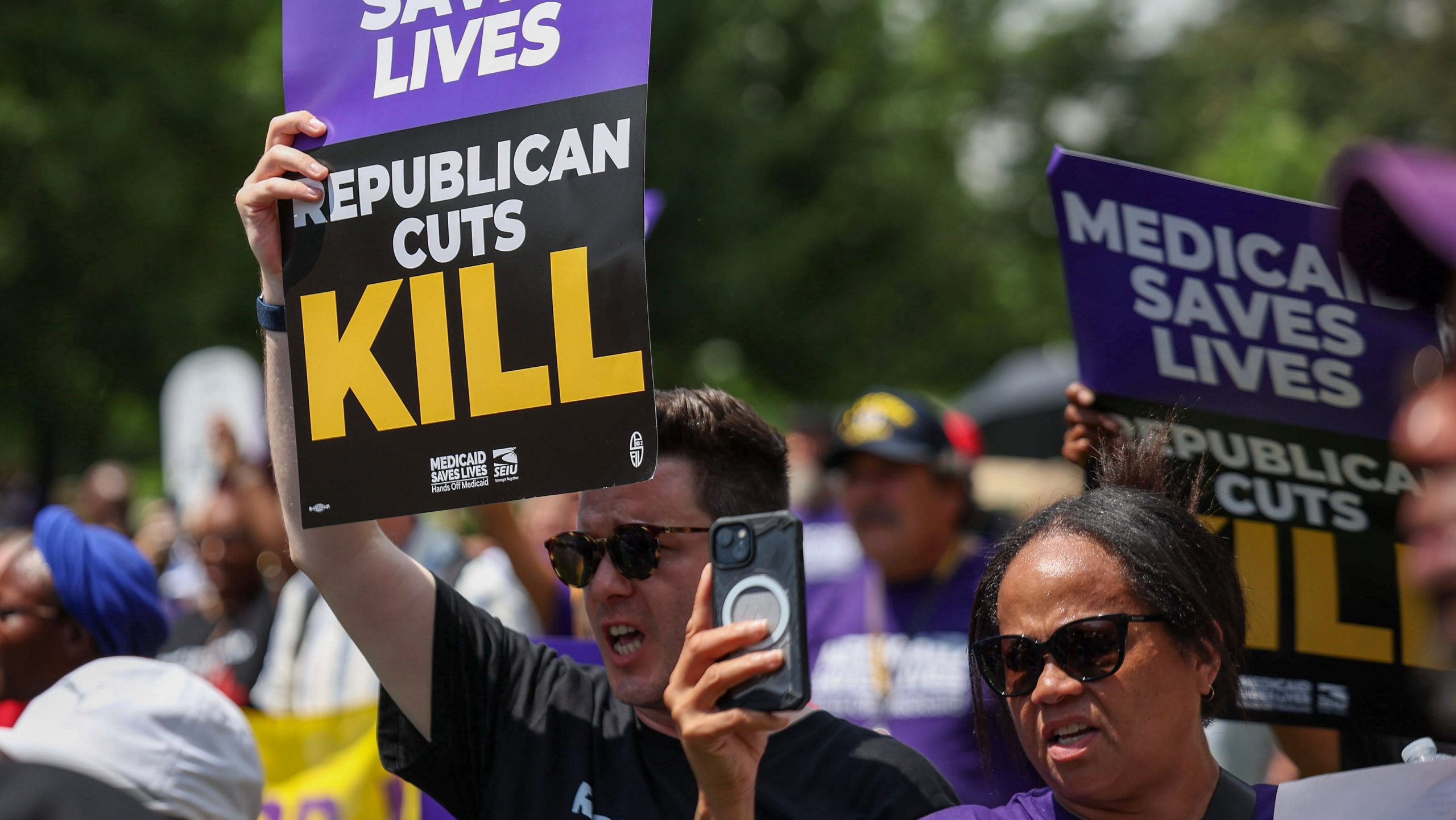The political landscape is currently dominated by an intriguing paradox: the Republican Party, traditionally espousing fiscal conservatism, is now overseeing a dramatic surge in federal spending, epitomized by former President Trump’s controversial “One Big Beautiful Bill Act.” This legislative initiative, touted as a triumph, is instead sparking significant voter backlash as Americans begin to fully grasp its implications, challenging the very narrative of fiscal prudence that once defined the GOP.
Far from reining in government expenditure, this administration and its congressional allies are orchestrating a substantial increase in the national debt. Contrary to popular belief, the “One Big Beautiful Bill Act” does not curb your tax dollars; instead, it funnels vastly more, with projections indicating an additional $2.5 trillion over the next decade. This expansion of federal spending stands in stark contrast to the party’s frequent calls for austerity, leaving many to question the true priorities guiding legislative decisions.
A critical shift in public opinion is underway as voters increasingly perceive the real-world effects of Trump’s policies, many of which are proving far less popular than initially anticipated. Even areas that previously garnered strong support, such as immigration, are now seeing a reversal of fortunes, highlighting a growing disconnect between political rhetoric and public satisfaction. This evolving sentiment poses a significant challenge to the Republican agenda.
Specifically, the new budget bill allocates substantial funds towards immigration enforcement, including provisions for hundreds of new miles of border wall and the recruitment of 10,000 additional agents for a force that already numbers 20,000. These substantial investments, while fulfilling a campaign promise, contribute directly to the burgeoning federal spending and raise questions about the allocation of taxpayer money in a climate of increasing national debt and shifting public priorities.
Adding to the complexity is the visible hypocrisy among some Republican lawmakers. Senator Josh Hawley of Missouri, for instance, publicly voiced concerns about the bill’s drastic cuts to Medicaid funding for the working poor. Yet, despite these stated reservations, he ultimately cast his vote in favor of Trump’s budget, only to subsequently propose new legislation aimed at rectifying the very issues he initially supported, creating a clear perception of political maneuvering rather than genuine conviction.
Similar instances of apparent backtracking further erode public trust. Senator Lisa Murkowski of Alaska, having endorsed the bill, shamelessly attempted to diffuse responsibility by urging her House colleagues not to support the very legislation she had just approved. Meanwhile, Senator Ted Cruz of Texas, now advocating to roll back provisions within Trump’s budget that defund police departments, offered the unconvincing explanation that “Most Republicans didn’t even know this was in the bill when they voted to pass it,” revealing a disconcerting lack of oversight or accountability.
The former President’s pervasive influence over the Republican Party in Congress is undeniable, with legislative leaders consistently avoiding direct opposition. They frequently champion fiscal responsibility and vow to curb federal spending, all while demonstrably increasing the nation’s debt. This ongoing contradiction, where rhetoric diverges sharply from financial reality, has become a defining characteristic of the current political moment, leaving many to wonder about the long-term economic stability and true beneficiaries of these policies.
Ultimately, this isn’t about spending less of your tax dollars; it’s about reallocating them in ways that disproportionately benefit the super-rich, ensuring they avoid the same tax rates as middle-class Americans, while simultaneously expanding federal outlays. This fundamental reorientation of fiscal policy, coupled with the increasing unpopularity of specific measures, is causing widespread dissatisfaction among the American populace, who are realizing the true cost of these decisions.
The path to accountability lies ahead in the 2026 midterm elections. While many Republicans in Congress may feel constrained by the former President’s influence, their genuine fear should be directed towards the voters, who possess the ultimate power to unseat them for their role in backing a budget that, for many, fails to align with their interests and the nation’s well-being. The electoral consequences of this “Big Beautiful Bill” may prove to be far from beautiful for its supporters.






Leave a Reply